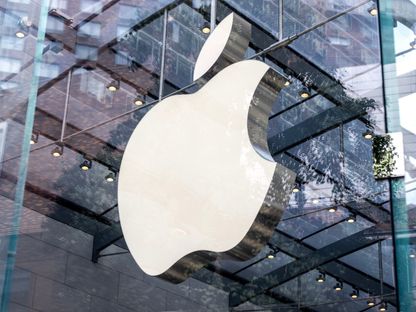In a landmark ruling, the European Court of Justice has ordered Apple to pay €13 billion ($14.4 billion) in back taxes to Ireland, marking a significant victory for the European Commission's crackdown on special tax deals granted to major corporations by individual countries.
The court upheld a historic 2016 decision, concluding that Ireland had breached EU state aid laws by providing Apple with an unfair tax advantage. This ruling overturns a lower court's judgment in favor of Apple, which had found that the European Commission's regulatory body had made errors in its assessment.

Read also :
The Top 3 Android Phones of 2024: A Comprehensive Guide
A Major Win for EU Competition Chief Margrethe Vestager
The ruling is a notable triumph for Margrethe Vestager, the EU Commissioner for Competition, who is nearing the end of her two terms in Brussels. In 2016, Vestager stirred controversy across the Atlantic by scrutinizing Apple's tax practices, claiming that Ireland had granted illegal advantages to the Cupertino-based tech giant, allowing it to pay significantly less tax compared to other companies in the country over many years. Vestager had ordered Ireland to recover the €13 billion, which was held in escrow pending the final decision.
Apple's Response and Broader Implications
Apple expressed disappointment with the court's decision, asserting that the General Court had previously reviewed the facts and dismissed the case outright. While this is a setback for Ireland, which had denied providing special tax benefits to Apple or other tech firms setting up headquarters there, the lengthy duration of the case is unlikely to significantly impact Ireland’s status as a hub for major tech companies.
Apple's CEO Tim Cook had previously criticized the EU's actions, describing them as "complete political nonsense." The U.S. Treasury also intervened, arguing that the EU was overstepping by acting as a "cross-border tax authority," which could jeopardize global tax reform efforts. Former U.S. President Donald Trump had accused Vestager of "hating the United States" for targeting American companies.
A Decade-Long Campaign for Tax Justice
The Apple case represents the largest decision in Vestager’s decade-long campaign for tax fairness, which has also targeted companies like Amazon and Fiat Chrysler. Vestager has argued that selective tax advantages for large corporations constitute illegal state aid prohibited by EU laws.
The case, decided on Tuesday, centered on two tax agreements with the Irish government from 1991 and 2007. These agreements allowed Apple to allocate Irish profits to a "head office" that existed only on paper, resulting in significantly reduced tax bills. The EU's antitrust arm viewed these exemptions as contrary to fair competition and illegal state aid.
The Road Ahead for Corporate Taxation
Since the case began, Vestager has faced several setbacks in other tax-related disputes but finds solace in the court’s endorsement of her approach to using state aid rules to challenge unfair arrangements.
Apple was among the first American tech giants to set up in Ireland, attracted by the country's deliberately low corporate tax rates in the 1980s and early 1990s, designed to lure foreign investment. The company established its European headquarters outside Cork in 1980 and now employs around 6,000 people in Ireland.
In recent years, many of the tax loopholes that were once available have been closed, and in 2021, Ireland signed onto OECD measures that include a global minimum corporate tax rate of 15% for multinational companies.
Tags: #Apple #EuropeanCourt #TaxJustice #EU #MargretheVestager #Ireland #TaxReform #CorporateTax #Bloomberg #FinanceNews #LegalUpdate #InternationalBusiness #TaxPolicy
Source: Bloomberg

